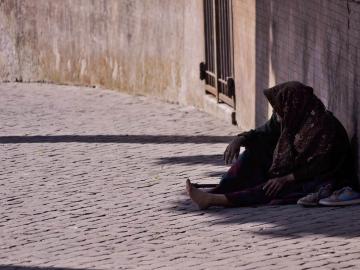
On January 27, 2016, The Department of Global Health and Social Medicine’s 2015–2016 Seminar Series and the Center for Primary Care’s ongoing series on Perspectives in Primary Care, co-sponsored Extraordinary Care for the Most Vulnerable Patients: Motivations and Lessons from the Front Lines. Monica Bharel, Paul Farmer, and James O'Connell addressed an audience of more than 300 people, including clinicians, researchers, advocates, and medical students and related stories about their front line experiences on caring for our vulnerable populations.
Monica Bharel, MD, MPH, a Harvard Medical School instructor in medicine at Massachusetts General Hospital and commissioner of the Massachusetts Department of Public Health stressed a valuable lesson that she learned during her clinical days—“People’s stories matter.” Dr. Bharel warned that without taking time to learn about the whole person—not just the patient-side—treatment becomes difficult if not impossible.
James O’Connell, MD, a Harvard Medical School assistant professor of medicine and founder and president of the Boston Health Care for the Homeless Program, dovetailed his own stories with the others and emphasized that before the opportunity to treat a homeless patient can happen, trust must grow. Dr. O’Connell shared that earning this trust could take up to a year, sometimes one cup of coffee at a time.
Paul Farmer, MD, PhD, the Kolokotrones University Professor of Global Health and Social Medicine, chair of the Harvard Medical School Department of Global Health and Social Medicine, chief of the Division of Global Health Equity at Brigham and Women’s Hospital, and co-founder of Partners In Health, used his vast experiences from working in resource-limited settings to convey the idea that community health care could be the key to the health care of the homeless and other vulnerable populations here, at home. Dr. Farmer knows that having a “robust system of community health workers who can meet patients where they live and make sure their long-term medical needs are met has been the key to higher survival rates, lower transmission rates, and greater adherence to medication plans” in HIV patients in countries like Rwanda. He stressed that the U.S. would do well to implement a similar community health care model to address our own most vulnerable populations.
Related links:
- Bridging the Gap, by Jake Miller
- Taking It to the Streets, by Lauren Massey
- Street Doctor, by Debra Bradley Ruder
- Rwanda, PIH website